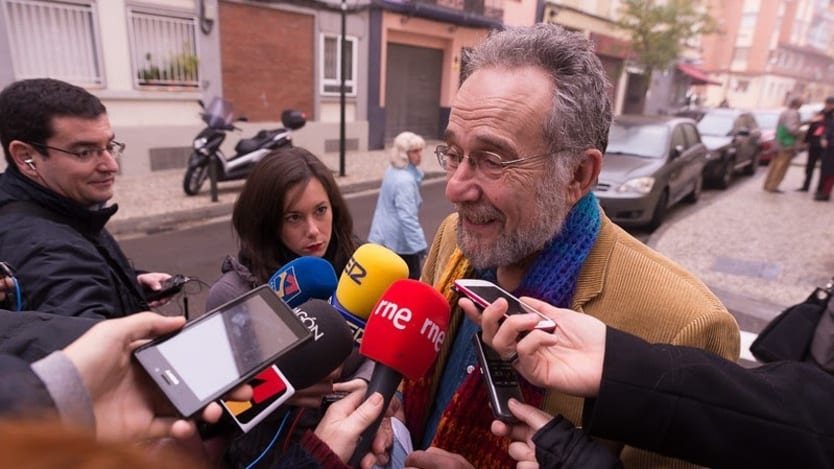The new UN special rapporteur on water and sanitation lays out his priorities

ALICANTE, Spain — Exploring the impact of COVID-19 and the climate crisis on water and sanitation will be the first priority for the new United Nations special rapporteur on the human rights to safe drinking water and sanitation.
Pedro Arrojo-Agudo, a Spanish professor and ecologist, took up the voluntary position at the start of the month. He replaces Leo Heller, who served two three-year terms.
Special rapporteurs are elected independents appointed by the U.N. Human Rights Council to monitor, advise, and report on issues pertaining to human rights while investigating any violations and conducting country visits. There are currently 40 special rapporteurs, and each produces a series of thematic studies related to their area of expertise while also raising awareness and engaging in advocacy.
Arrojo-Agudo said his first report, coming out next year, will dig into the double crises the world currently faces and the ways in which they might jeopardize the human right to safe drinking water and sanitation.
“I take up my duties in the midst of a double global crisis – climate change and COVID-19,” he said in a statement. “If we want to surmount these crises, we must empower marginalized people and groups, make sure we protect women and girls and of course, protect people who stand up for human rights.”
The consequences and challenges that emerge from this research will help inform his mandate planning, he told Devex.
An emeritus professor of economic analysis at the University of Zaragoza in Spain, Arrojo-Agudo’s main field of research is water management and economics.
Other priorities for Arrojo-Agudo include the human right to water and sanitation in Indigenous communities, the empowerment of women as defenders of the human right to water and sanitation, and the protection of the human rights defenders who often put their lives in danger, he said.
Does WASH need a global leader?
COVID-19 brought welcome attention to the water, sanitation, and hygiene space. But does the sector have the leadership needed to keep the momentum going beyond the pandemic?
While admitting he does not yet know how to do it, the professor said he also wants to reinforce the role of UN-Water in implementing the human right to safe drinking water and sanitation. “Very often, the main issues around the world on this question are led by the private sector. It's OK, no problem; they can hold the water forums. But I think UN-Water can have a more active role,” he said.
Earlier this year, sector professionals questioned whether UN-Water, if given the right resources and empowerment, could be the global leader the WASH space needed.
Calling his new appointment, “a huge privilege and a great honor,” Arrojo-Agudo said the challenges lying ahead — including garnering collaboration and commitments from various municipalities to implement the human right — are “overwhelming.” But despite carrying out his duties independently, he knows he will be working alongside human rights defenders around the world, he said.
Search for articles
Most Read
- 1
- 2
- 3
- 4
- 5
